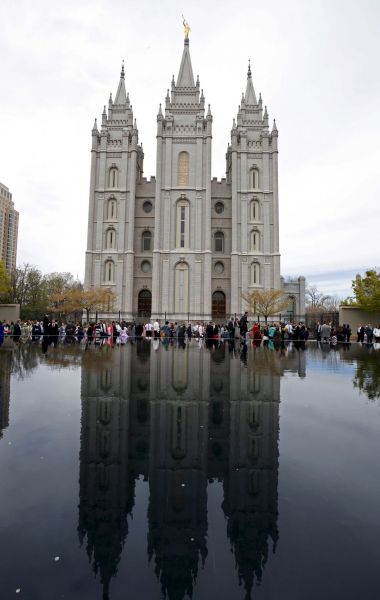Distinct Mormon names: Expression of individuality or sign of cultural similarity?

How do names like Kaybree, Haizley, Aimzlee, LaMar, Kaisen, Legend, Brylianna, Xylie and Breydin sound to you?
These names seem a bit odd to most people, but for members of the Mormon Church, these are but some of the usual names they give their children as part of their distinctive naming practices.
In an article on the Religion News website, Utah-based folklorist Jennifer Mannsfield discussed why Mormons choose to give out-of-the-ordinary names to their children.
To explain this, Mannsfield—who studied these distinctive naming practices as part of her thesis to finish her master's degree—first stated that most Americans perceive Mormons as culturally homogenous.
However, Mormons see the "Mormon Corridor," or areas in Western North America otherwise known as the "Jell-O Belt," as a different subgroup within Mormonism. This perceived subculture was created out of the concentration of Mormons in Utah, Idaho, Nevada and Arizona.
Aside from the perceived cultural difference between those from the "Mormon Corridor" and those from other areas, Mormons are culturally similar, according to Mannsfield.
She cited a Pew Research Center survey where Mormons from this corridor and those from other parts of the United States both stated that their closest friends are usually fellow Mormons.
Having this understanding of the Mormon culture and its strict behavioural guidelines and expectations, Mannsfield posited that Mormons used distinct names to separate themselves from others.
"Perhaps because naming is one of few areas in which the Church has not formally instructed its members, Mormons in heavily Mormon areas might use naming as a way to set them apart and express individuality to some degree," the folklorist said.
She, however, realised that instead of being a mark of uniqueness, distinct names just became something that made Mormons the same.
"Ironically, the act of unique and creative naming does not set them apart, but instead is another characteristic shared with many of their Mormon neighbours, she explained.
She further said that "very few Mormons deliberately use baby naming practices to rebel against the pressures of social conformity that come along with being part of a tight-knit religious subculture."
"No one I've spoken with seems to realise that their 'unique' names are not unique at all, but instead are yet another characteristic they share with many of their Mormon neighbours," Mannsfield said.











